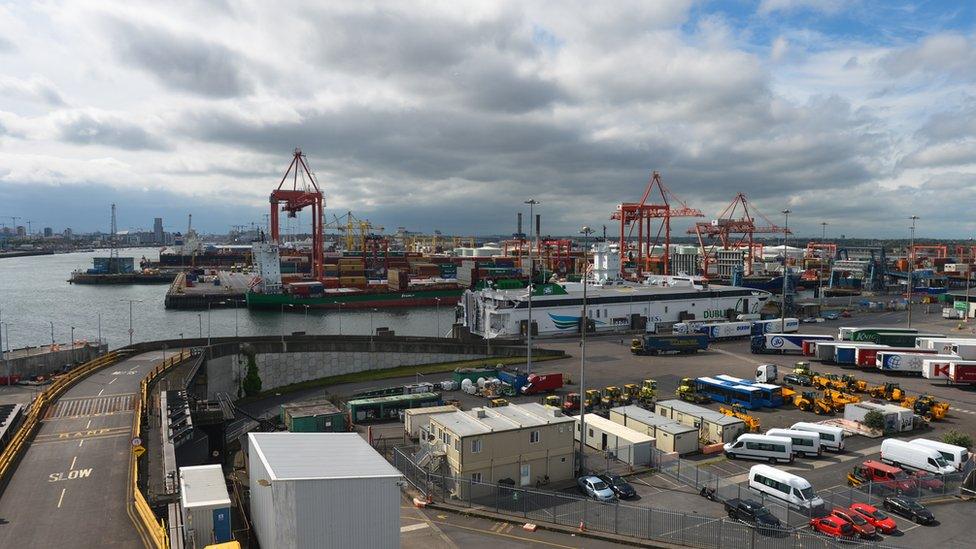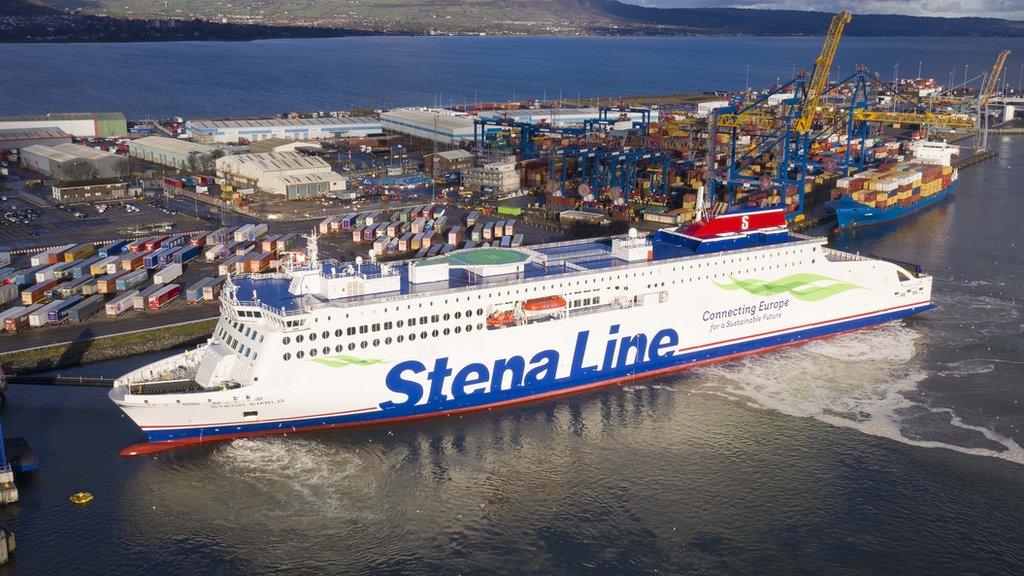Brexit: Dublin Port trade down 15% compared to last year
- Published
- comments

Trade in goods between Ireland and Great Britain is now more difficult due to Brexit checks
Trade through Dublin Port in the first quarter of 2021 fell by more than 15% compared to the same period last year.
The port's chief executive Eamonn O'Reilly said this was mainly due to Brexit.
Trade in goods between Ireland and Great Britain is now more difficult due to Brexit-induced checks and administration.
Mr O'Reilly said it was too early to assess whether the declines in trade seen so far in 2021 will persist.
There were also some pandemic-related impacts on the port's performance: due to continuing reduced transport demand, bulk imports of petrol products were down by 23% year-on-year.
The port's figures show that volumes of roll-on, roll-off (Ro-Ro) freight to and from GB ports fell by 29% to 152,000 units.
That was partially offset by Ro-Ro freight to and from ports in France, Belgium and the Netherlands increasing by 26% to 52,000 units.
That reflects the trend of some companies shipping their goods directly to other EU countries rather than using the traditional 'landbridge' through GB.
Mr O'Reilly said he was hopeful the landbridge route can grow again as ferry operators and their customers adapt.
But he is worried that some trade could be lost permanently to Northern Ireland ports.
'Trade permanently lost'
Northern Ireland operators sending goods to GB have "unfettered access" if they send goods from Northern Ireland ports but they face administrative barriers if shipping the same goods through Dublin.
Similarly it may currently be easier for some Republic of Ireland operators to ship via Northern Ireland ports.
Mr O'Reilly said: "Back in 1990, before the single European market was established, more than a third of Ro-Ro trade chose services to and from Northern Irish ports rather than use services in and out of Dublin Port.
"We won't get a proper sense until later in the year as to how much of the 29% decline we have seen in GB Ro-Ro trade is due to the new border regimes and whether this dislocation will be a permanent feature for the years ahead or not."
Related topics
- Published15 January 2021

- Published4 March 2021
